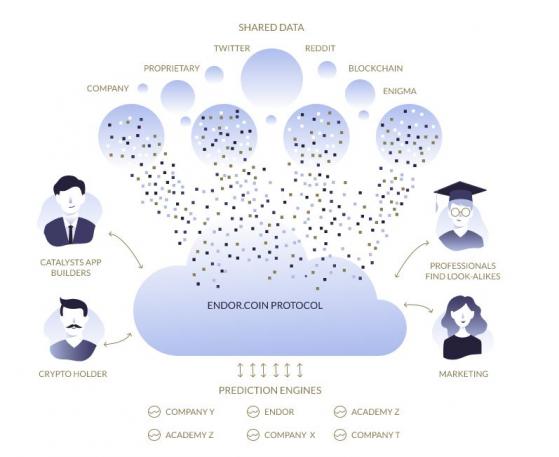We live in an age where information and communications technologies are dominant. Thus, we need precise data of all kinds to make informed decisions and be able to predict future developments with the greatest accuracy possible.
However, data alone does not make any sense. It needs to be collected, analyzed, computed, and processed, which is a complicated and slow procedure that demands sophisticated hardware and software, artificial intelligence (AI) technology, lots of time to set up data models, and data scientists (who happen to be in short supply). As a result, only the biggest and wealthiest companies can afford the costly predictive analytics technology.
"We are coming to realize that human behavior is determined as much by the patterns of our culture as by rational, individual thinking. These patterns can be described mathematically and used to make accurate predictions," comments MIT professor Alex “Sandy” Pentland, co-founder of the project and one of "The World's 7 Most Powerful Data Scientists.”
Endor aims to democratize data science
Endor comes with a technological breakthrough that has the potential to democratize data science and the entire data analysis industry by eliminating its high cost and entry barriers.
Endor has developed the ENDOR.coin protocol to make predictive data analytics more accessible, more practical, and simpler for everyone. It is the world's first decentralized behavioral prediction platform that provides automated, accurate, and fast predictions, with no coding or data science expertise required. Anyone can ask the system any question in plain language and get automated, accurate predictions.
Businesses will enjoy additional benefits in the form of scaling predictive analytics without recruiting staff and gaining better insights into consumer behavior.
The project is powered by blockchain technology and social physics, a revolutionary new science developed at MIT. Using proprietary technology, Endor transforms social physics into a powerful engine able to predict human behavior. Importantly, the project has been under development in the MIT since 2014, and this engine is a working product. The list of its clients includes names such as Coca-Cola, Twitter, Mastercard, and Walmart (NYSE:WMT).
The Endor ICO has already closed, with the project reaching its pre-defined hard cap of $45 million during the pre-sale stage. The team issued 1.5 billion EDR tokens, and only 20% of the total amount was available for sale. The biggest share of the tokens generated (40%) will be used to finance research and business development. The company plans to strike partnership deals with leading research institutes and to purchase prediction engine technologies.
If you want more information about this project, visit the official website or subscribe to its news updates on Twitter and Telegram.
This article appeared first on Cryptovest
